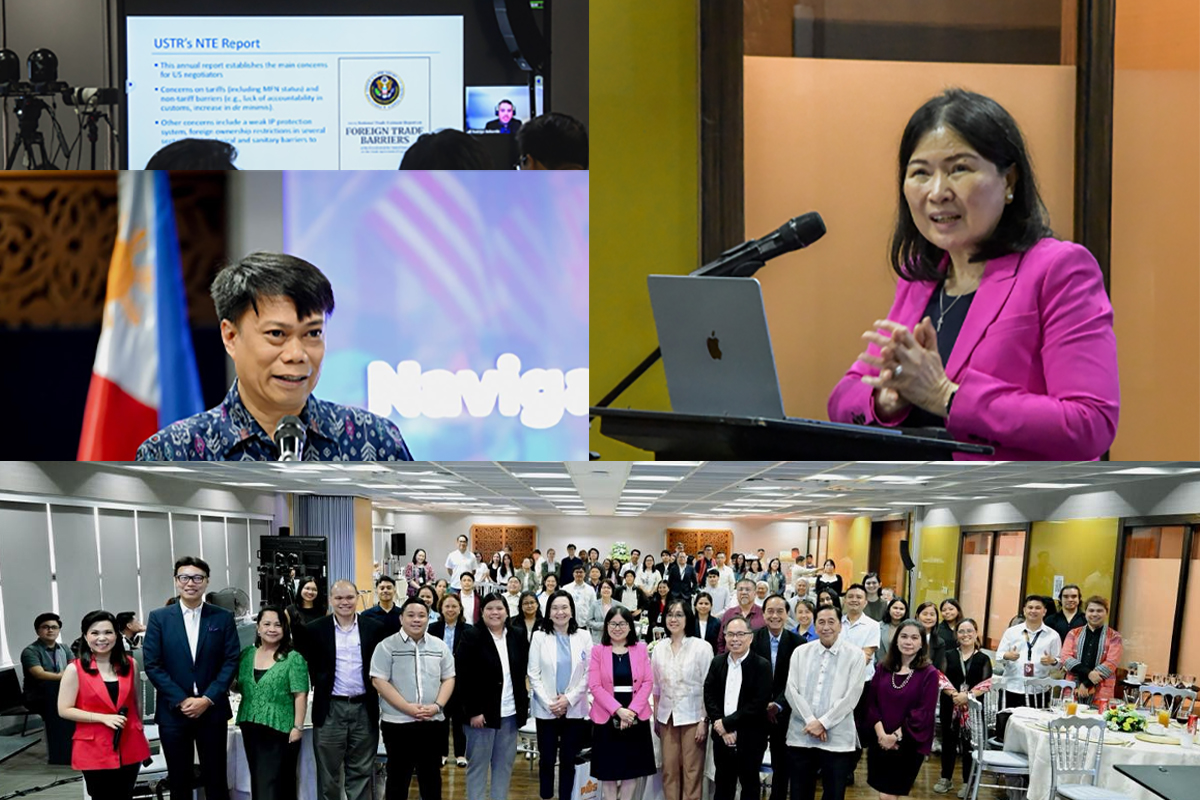IN a recent seminar coorganized by the Department of Trade and Industry (DTI) and the Asean Japan Center (AJC) titled “Changing Trade and Investment Landscape in Asean and the Philippines,” the DTI cited the importance of global value chains and nonequity mode (NEM) in the growth of Philippine exports.
“NEM is of particular importance to the country given our participation to activities, such as IT-BPO [information-technology-business- process outsouring], international subcontracting, franchising and licensing, among others,” Trade Undersecretary Nora K. Terrado said.
Meanwhile, global value chains for international production translate to the different stages of the production process across different countries. This allows outsourcing and offshoring of activities of many multinational enterprises.
AJC Secretary-General Masataka Fujita and Dr. Chie Iguchi from Keio University led the presentation of three AJC-initiated papers, namely, “Global Value Chains in Asean: A Regional Perspective”, “Global Value Chains in Asean: The Philippines” and “Non-Equity Modes of Trade in Asean: The Philippines.”
The papers provided valuable perspectives on the strategic importance of participation in global and regional value chains as Asean member-states maximize opportunities and benefits of economic integration while recognizing differences in economic development and industrial policies and the growing threat of protectionism.
To further substantiate the initial findings in the papers, interactive dialogues were conducted between AJC and a panel of discussants, including Ambassador of Myanmar to the Philippines U Win Naing, First Secretary Jenni McEwin of the Australian Embassy in the Philippines and Director Senen M. Perlada of the DTI’s Export Marketing Bureau.
Representatives from academe were also present during the seminar, including Dr. Joseph T. Yap and Dr. Ramon L. Clarete from the University of the Philippines School of Economics and Dr. Francis Mark A. Quimba from the Philippine Institute of Development Studies.
The private sector was represented by IT and Business Process Association of the Philippines Executive Director Penny S. Bongato.
More than 150 representatives from the government, industry and think tanks participated in the seminar.
“NEM is of particular importance to the country given our participation to activities, such as IT-BPO [information-technology-business- process outsouring], international subcontracting, franchising and licensing, among others,” Trade Undersecretary Nora K. Terrado said.
Meanwhile, global value chains for international production translate to the different stages of the production process across different countries. This allows outsourcing and offshoring of activities of many multinational enterprises.
AJC Secretary-General Masataka Fujita and Dr. Chie Iguchi from Keio University led the presentation of three AJC-initiated papers, namely, “Global Value Chains in Asean: A Regional Perspective”, “Global Value Chains in Asean: The Philippines” and “Non-Equity Modes of Trade in Asean: The Philippines.”
The papers provided valuable perspectives on the strategic importance of participation in global and regional value chains as Asean member-states maximize opportunities and benefits of economic integration while recognizing differences in economic development and industrial policies and the growing threat of protectionism.
To further substantiate the initial findings in the papers, interactive dialogues were conducted between AJC and a panel of discussants, including Ambassador of Myanmar to the Philippines U Win Naing, First Secretary Jenni McEwin of the Australian Embassy in the Philippines and Director Senen M. Perlada of the DTI’s Export Marketing Bureau.
Representatives from academe were also present during the seminar, including Dr. Joseph T. Yap and Dr. Ramon L. Clarete from the University of the Philippines School of Economics and Dr. Francis Mark A. Quimba from the Philippine Institute of Development Studies.
The private sector was represented by IT and Business Process Association of the Philippines Executive Director Penny S. Bongato.
More than 150 representatives from the government, industry and think tanks participated in the seminar.












